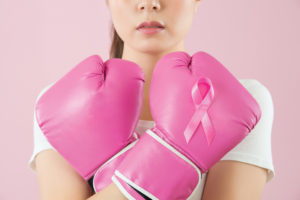
 By Sumer Dene
By Sumer Dene
Bay Group Media has and always will support Breast Cancer research. As a company we predominantly employ women and understand the importance of spreading knowledge to our readers. Information can save lives and help prevent tragedies. Our CEO, Rick Clapp has experienced the devastation and complexities of cancer and is a champion survivor.
Breast Cancer Awareness month is dedicated to spread awareness of the most common cancer among women. People gather at special events and fundraisers around the world to offer support. Health groups respectfully join together to discuss, inquire and evaluate a resolution to the pandemic we call cancer.
The goal of Breast Cancer Awareness month is to build a community of fabulous cognizant women who embrace their bodies, maintain a healthy lifestyle and unite in sisterhood. Being happy with who you are and mindful of your daily choices can go a long way and can lead others to do the same.
We encourage women to love and respect each other. Groups challenge the limited view of female sexuality and advocate for chemical regulations, a healthier work and home environment and transparent information regarding health and wellness.
RISK FACTORS
Risk factors for breast cancer include age, obesity, heavy drinking, smoking, chronic inflammation, high stress and toxins in our environment and diet. According to the National Cancer Institute, being exposed for a long time and/or to high levels of hormones is linked to an increased risk in breast cancer. Pesticides, synthetic chemicals and plastics leach harmful toxins that emulate estrogen in the body. These chemicals are found in processed foods, conventional health and beauty products, and the unnecessary plastic we use daily.
Excess estrogen is stored in fat and sequentially signals the body to store more fat. It’s a dangerous cycle that affects our lives in many ways. If something doesn’t seem right, ask pertinent questions. Answers become clear when you investigate. Educating yourself on important issues within a community brings everything to light to assess the bigger picture. In a free market with unlimited information and choice, where can we find solutions to complex, intricate issues for the betterment of society and the health of our people?
The “system” can be changed from the inside out. We can address obstacles to unite and lead towards a better world. Cancer rates have risen exponentially as time goes by, and so has the prevalence of many other diseases. U.S. taxpayers spend a groundbreaking $38 billion yearly to subsidize meat and dairy consumption including heavy subsidies on corn and soy. Nevertheless, experts and scientists advocate for a diverse diet rich in healthy fats, leafy and cruciferous vegetables, low-glycemic fruits, herbs and spices, and fibrous and fermented foods.
In a consumption driven industry, citizens pay for their own demise. This is an indicator of an issue that lingers in our government, food and education system and even within ourselves. We can all agree that changing government subsidies for the betterment of our people can save millions, advance healthcare and improve the quality of our lives.
SAVES LIVES
Early detection of breast cancer can save lives. Check yourself for any changes in breasts 4-5 days after your period. Notice any change in shape, color, size and contour. Caress breasts in different positions and gradually increase pressure applying three fingers in a U-shaped circular motion. Pregnant women can reduce their chances of breast cancer by breast-feeding, which results in lowered estrogen levels in the body. Learn to relax and be aware of how stress triggers you. High cortisol levels over time affect the production of hormones and weaken the immune system. Recognize negative thoughts and realize that most anxieties are not reality or truth. The best we can do is prepare for the worst, expect the best, and help others live with passion and to their highest potential.
Women are learning to embrace their femininity without limits. Female sexuality is elusive and mysterious, not until recently has culture allowed women to express themselves, connect to their body and discover their true potential as leaders in our world.
It is time to celebrate womanhood for the beauty and power that it contains. What messages do women receive growing up in this culture? Peer support groups are now spreading social messages to better lives by sharing relatable experiences. When we acknowledge and understand ourselves and the differences we have with the opposite sex we can deepen our relationships.
We strive to inspire men and women to live with intention and mindfulness to support a community of strong individuals that celebrate life together.
There is no rhyme or reason for a disease that affects people worldwide from many walks of life. Cancer has no prejudice or boundaries. It can affect anyone at any time of their lives for reasons unknown to science. The environment we are raised in dictates our habits and lifestyle choices. For any change to take place it must first happen within. A guideline for longevity is to enjoy a nutrient dense diet with healthy fats and wholesome foods, live life to the fullest, and be happy.
In the month of October, set aside a moment to honor the courageous people affected by this appalling disease and stand together to move forward to find solutions that can implement profound changes.



